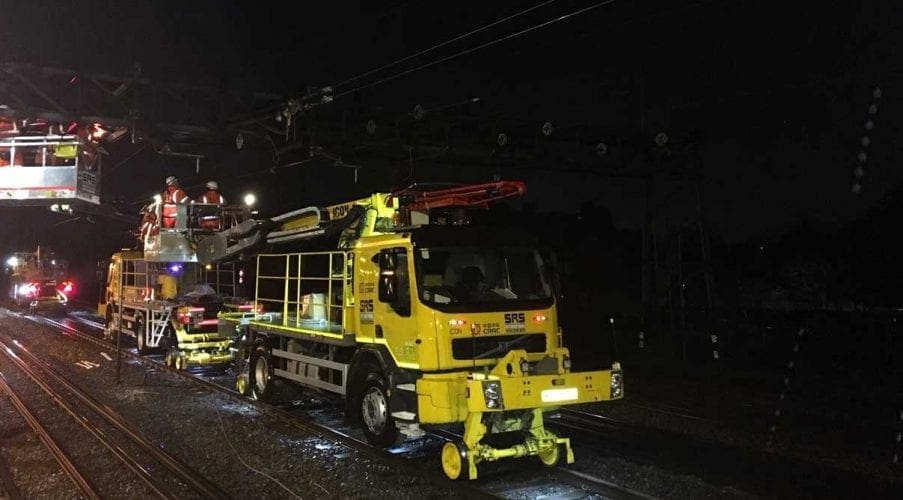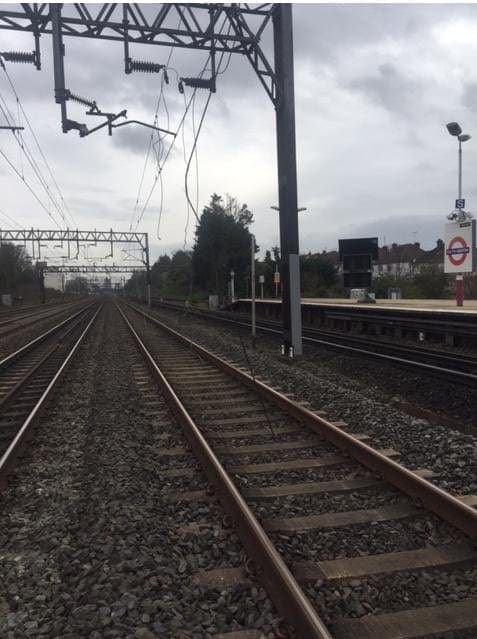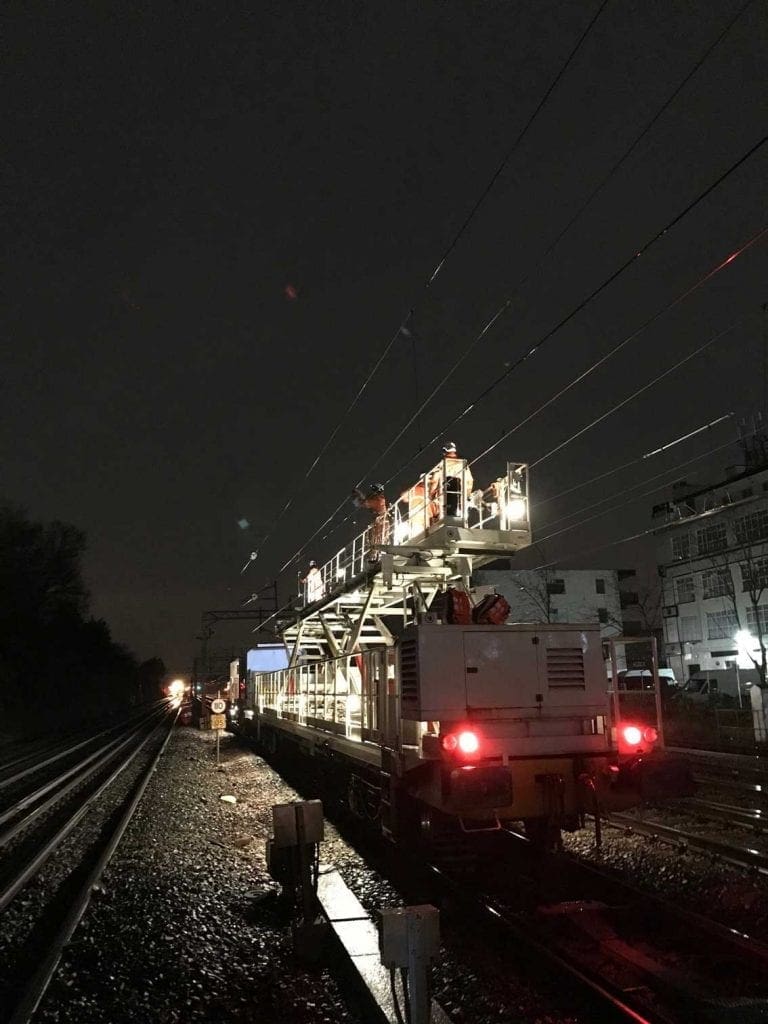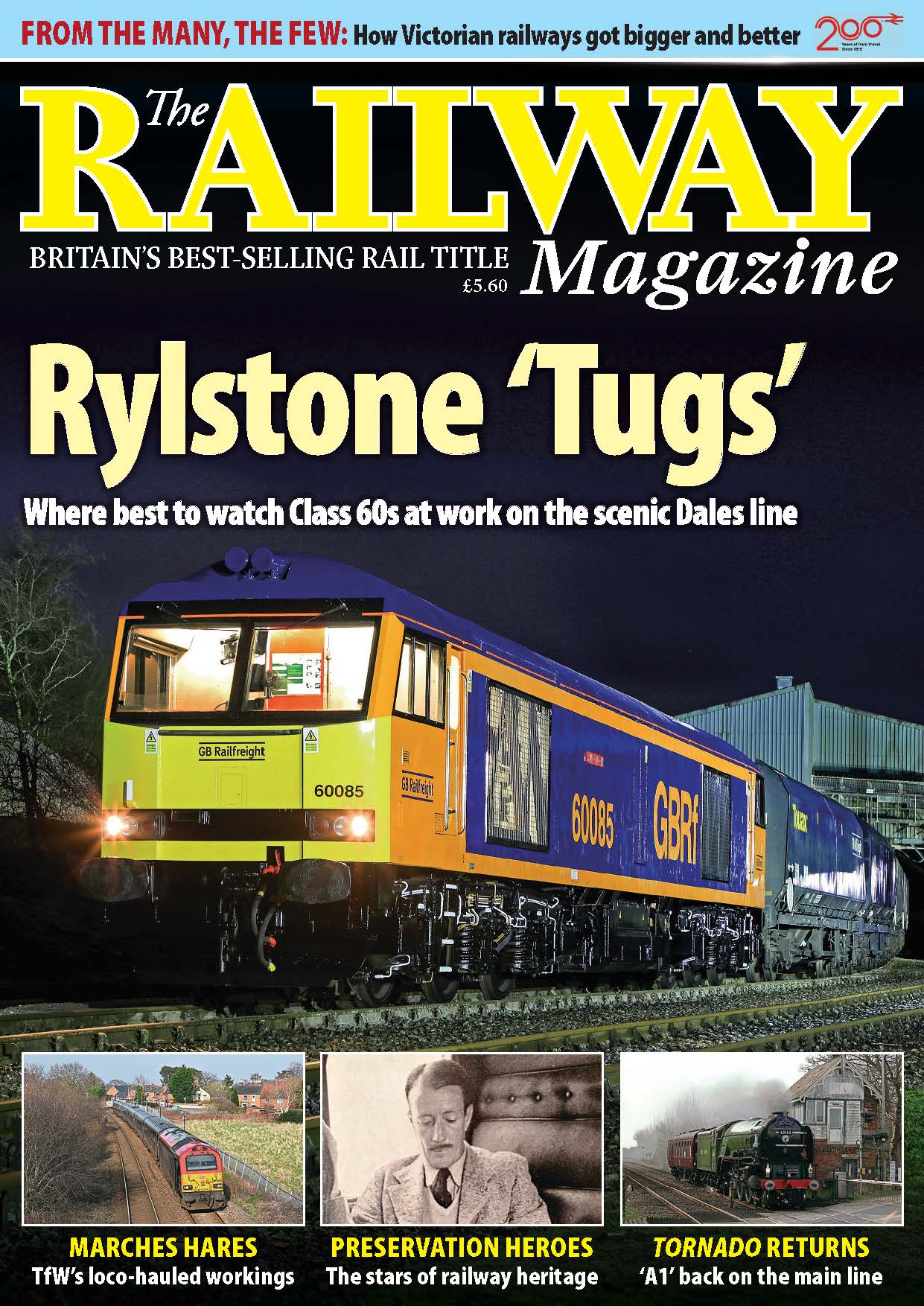
Passengers travelling to and from London will have noticed and been impacted by delays and cancellations over the past few days.
James Dean, Managing Director of West Coast Mainline South route, has apologised this week, after damage to overhead lines in the South Kenton area in Wembley, London, caused widespread problems for passengers.
What happened?
On Saturday 7 March a rail service travelling at 125mph brought down 1,000 metres of overhead wires in the South Kenton area in Wembley.
The train’s pantograph caught wire that was out of place and, because the train was travelling at such speed before slowing to a stop, it caused one kilometre stretch of wire to be pulled down.
A full investigation is still under way to find out the cause of this unwanted pantograph contact.

This line (one out of six in total) had to be closed and the electricity turned off due to the extensive damage. Specialist teams and equipment are needed to fix damage like this, including a wiring train of which there are only a handful in the country.
Mr Dean said: “In reality we needed 16 hours non-stop to do the work but we needed to only disrupt the railway overnight.
“Immediately my teams worked to pull together the right people and kit to fix it but unfortunately the earliest we could do this was Sunday night (8 March). We had to block all six lines initially, so night-time was the least bad time to do this work.
“I spoke with my colleagues at Southern Rail, Avanti, London Overground, Caledonian Sleeper and London North Western Railway to look at how, collectively, we could keep passengers moving on alternative lines. We agreed a reduced timetable and worked together to inform passengers of the upcoming disruption.”

Further damage discovered
Teams removed the damaged wire and installed one kilometre of new wire during the night on Sunday, allowing the line to reopen to diesel trains early on Monday morning.
Further work was needed during Monday night to install an assembly called a neutral section, which insulates two feeder stations from each other, and install more equipment whilst checking the alignment of the new overhead wires to fully reopen the line.
Overhead lines need to be at specific heights from the rail to ensure consistent electrical contact. They are also installed with a stagger or zig zag alignment to ensure an even wear across the pantograph of the train, in a complex procedure.
Mr Dean said: “While we worked on the overhead wires on Monday night, the team found further damage to the supporting structures outside of the wire stretch. Specifically this was the equipment around the neutral section.
“It was in the small hours of Tuesday morning that I realised we’d just uncovered the latter. This is not an excuse. We must do better in future. And we will. But I hope it gives you an insight into what was happening out there in the cold and dark as we discovered more damage than had previously been detected.
“My heart sank. We needed to act immediately. The work needed to fix the other damaged equipment delayed the job. And, infuriatingly, this meant we disrupted passengers again on Tuesday morning.
“At 3:30am I was faced with two main choices, either complete as much work as possible so the line could reopen – electrically charged but with trains lowering the pantograph under the affected area and coasting underneath. Or, keep the line closed with some of the equipment on site so we can easily repair the damage tonight.
“Neither of those were ideal because I knew passengers still wouldn’t get the full service they deserve. For that, I am truly sorry.”


